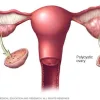Can anxiety and depression worsen back pain?
Anxiety and depression are common mental health conditions that can have a significant impact on a person’s overall well-being. These conditions not only affect a person’s emotional state but can also manifest in physical symptoms, including back pain. In this article, we will explore the connection between anxiety, depression, and back pain, and how these conditions can worsen each other.
Understanding the Mind-Body Connection
The mind and body are interconnected, and changes in one can affect the other. This is evident in the relationship between anxiety, depression, and back pain.
Anxiety and Back Pain
Anxiety is characterized by excessive worrying, fear, and a state of constant agitation. It can lead to physical symptoms such as muscle tension, including tension in the back muscles. Prolonged muscle tension can contribute to back pain and discomfort. Additionally, anxiety can cause hyperventilation, which decreases oxygen supply to the muscles, leading to muscle spasms and pain.
Depression and Back Pain
Depression is a mood disorder that affects one’s overall mood, energy levels, and motivation. It can make it difficult to engage in physical activities and maintain good posture, leading to poor spinal alignment and back pain. Moreover, depression can cause changes in the brain’s perception of pain, making individuals more sensitive to discomfort, including back pain.
The Vicious Cycle: How Anxiety and Depression Worsen Back Pain
Anxiety and depression can create a vicious cycle with back pain, where one condition exacerbates the other. Here’s how:
- Increased Sensitivity to Pain: Anxiety and depression can heighten an individual’s sensitivity to pain, making the back pain feel more intense and unbearable.
- Decreased Physical Activity: Anxiety and depression can lead to a decrease in physical activity levels, as individuals may experience low energy, lack of motivation, or fear of exacerbating their pain. Reduced physical activity can weaken core muscles, leading to poor posture and increased strain on the back.
- Muscle Tension and Spasms: Anxiety and depression can cause muscle tension and spasms, which can result in back pain. Additionally, muscle tension can restrict blood flow to the back, leading to further discomfort.
- Sleep Disturbances: Anxiety and depression can disrupt sleep patterns, leading to poor sleep quality. Lack of adequate sleep can contribute to increased pain sensitivity and overall discomfort, including back pain.
- Psychological Impact: Chronic back pain can have a significant psychological impact, contributing to anxiety and depression. The constant pain and limitations can lead to feelings of frustration, hopelessness, and a decreased quality of life.
Managing Anxiety, Depression, and Back Pain
Managing anxiety, depression, and back pain requires a comprehensive approach that addresses both the physical and mental aspects of these conditions. Here are some strategies that can help:
- Seeking Professional Help: Consult a healthcare professional, such as a doctor or psychologist, who can provide a proper diagnosis and develop a tailored treatment plan.
- Physical Therapy: Engaging in physical therapy can help improve posture, strengthen core muscles, and alleviate back pain. A trained physiotherapist can guide you through exercises and techniques to target specific areas of discomfort.
- Mind-Body Techniques: Practices such as yoga, meditation, deep breathing exercises, and progressive muscle relaxation can help reduce anxiety, promote relaxation, and relieve tension in the back muscles.
- Cognitive-Behavioral Therapy (CBT): CBT is a type of therapy that helps individuals identify and modify negative thought patterns and behaviors. It can be effective in managing anxiety, depression, and the associated back pain.
- Lifestyle Modifications: Adopting a healthy lifestyle that includes regular exercise, a balanced diet, adequate sleep, and stress management techniques can support overall well-being and help alleviate symptoms.
- Support Network: Seek support from friends, family, or support groups. Sharing your experiences and feelings with others who have faced similar challenges can provide comfort and understanding.
Introducing Fitpaa: Your Companion in Health and Well-being
While managing anxiety, depression, and back pain requires a comprehensive approach, technology can play a valuable role in supporting your journey. Fitpaa is an all-in-one mobile app that combines the latest research in lifestyle medicine, behavioral therapy, and personalized guidance to help you achieve your health and fitness goals.
With Fitpaa, you gain access to a team of experts, including fitness coaches, nutritionists, and doctors, who work together to create a personalized Fitpaa Capsule based on your metabolism, health goals, and lifestyle. The Fitpaa Capsule incorporates medical therapy, exercise therapy, nutrition therapy, and cognitive-behavioral therapy to optimize your metabolism and support your overall well-being.
The Fitpaa app guides you through your daily activities, providing real-time guidance, habit-building techniques, and motivational support. From virtual workout trainers to diet tracking and progress monitoring, the app offers all the necessary tools to help you stay on track and achieve your goals.
Experience the joy of taking control of your health and well-being with Fitpaa. Download the Fitpaa app today and begin your journey towards a healthier, happier life.
Remember, your well-being matters, and Fitpaa is here to support you every step of the way.
Note: Fitpaa is a comprehensive health and fitness app. Please consult with a healthcare professional before starting any new exercise or dietary program, especially if you have pre-existing health conditions or are currently receiving treatment for anxiety, depression, or back pain.









